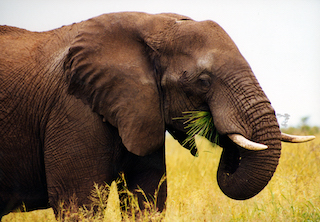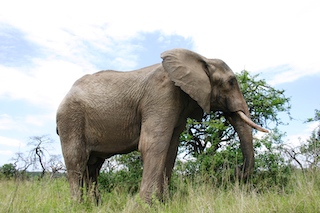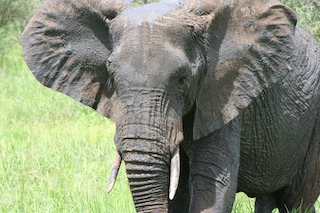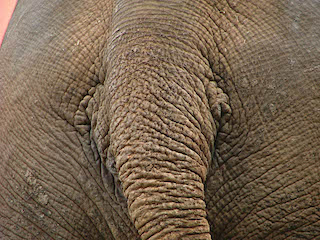Understanding Psychoticism Of Elephant Spirit Animal
In the world of spirit animals, the elephant is the most revered and powerful symbol. It is often associated with qualities such as strength, wisdom, compassion, and resilience. When an individual’s spirit animal is the elephant, it can offer valuable insight into their behavioral characteristics and personality traits. These individuals have deep emotional intelligence. A sense of familial duty and the ability to stay grounded make them resilient in the face of adversity. In this article, we will explore the key behavioural characteristics of people whose spirit animal is the elephant. We will also address the psychological concept of psychoticism. It relates to the compassionate and balanced nature of the elephant spirit.
Psychoticism of elephant spirit animal
Elephants are not only large, gentle creatures but also symbols of deep wisdom, patience, and emotional depth. In many cultures, elephants are protectors, teachers, and guides. In Hinduism, the elephant-headed deity Ganesha is the remover of obstacles and a symbol of intellect and wisdom. African cultures view the elephant as a leader in the animal kingdom. It is respected for its memory, familial connections, and ability to overcome challenges.
For those whose spirit animal is the elephant, these same qualities are often magnified in their psychoticism. People with the elephant as their spirit guide have an innate sense of leadership. They also have a strong connection to their past and a deep capacity for compassion and understanding. But like any spirit animal, the elephant can influence different aspects of a person’s character. Sometimes the ways are unexpected or nuanced.
Behavioural characteristics
1) Deep emotional intelligence and empathy
The most prominent behavioural trait of individuals with the elephant as their spirit animal is their emotional intelligence. Elephants have strong family bonds and understand and empathise with others. People whose spirit animal is the elephant often exhibit similar emotional awareness and sensitivity.
These individuals tend to tune to the feelings of those around them. They often pick up on subtle emotional cues that others may miss. They offer support, comfort, and understanding to others. Moreover, they possess the ability to connect with people on a profound emotional level. This often makes them excellent listeners, caregivers, and counsellors.
Their natural empathy allows them to navigate social situations with ease. They instinctively know how to make others feel valued and understood. This ability to offer deep emotional insight is the key reason why people seek them for guidance or support.
2) Leadership qualities and wisdom
Elephants are wise, and you can see this characteristic in people whose spirit animal is the elephant. These individuals often exhibit strong leadership qualities. Their leadership style is patience, understanding, and a long-term vision rather than impulsive action.
Elephants are social animals that thrive in matriarchal herds, where the oldest and wisest elephants lead the group. Similarly, individuals with the elephant as their spirit animal tend to lead by example. They guide others with their wisdom, life experience, and can think critically. They are not quick to make decisions, preferring instead to consider all perspectives before taking action. This thoughtfulness makes them excellent mentors, coaches, and strategic thinkers.
These individuals often find themselves in leadership roles, not because they seek power, but because their innate qualities of wisdom and compassion make them natural leaders who others trust and respect. Their leadership often reflects a deep sense of responsibility to the people they serve, and they have an innate desire to protect and support their communities.
3) Strong memory and connection to the past
Elephants have remarkable memory, and they often pass on this trait to those whose spirit animal is the elephant. People with this spirit animal have an ability to remember and learn from past experiences, whether their own or those of others.
This strong memory is not only about recalling details but also extends to the emotional and spiritual lessons learned from past experiences. These individuals often find themselves reflecting on their own personal history or the wisdom passed down through their families and communities. This connection to the past can be a powerful source of guidance, helping them make informed decisions and avoid repeating past mistakes.
The elephant’s ability to remember and honor the past also makes these individuals deeply connected to their roots and heritage. They are often the ones who preserve traditions, stories, and family legacies, recognising the value in holding onto and learning from what has come before.
4) Grounded and resilient in the face of adversity
Another key behavioural characteristic of people with the elephant as their spirit animal is their resilience. Elephants are large, powerful creatures that can withstand harsh conditions, and individuals with this spirit animal often display a similar resilience in the face of life’s challenges.
These individuals tend to be calm and steady during times of stress or adversity. They do not panic easily and are capable of maintaining composure even in the most difficult of circumstances. Their strength lies in their ability to stay grounded, taking one step at a time and trusting that they can navigate through any challenge with determination and patience.
Their resilience is not just physical but emotional as well. People with the elephant spirit animal are often able to bounce back from setbacks or traumatic events, using their experiences as fuel for growth. They have a deep well of inner strength that allows them to overcome obstacles and continue moving forward.
5) Nurturing and protective of loved ones
As social creatures, elephants place a high value on family and community, and this is reflected in the behavioral traits of people with the elephant spirit animal. These individuals are often deeply nurturing and protective of their loved ones, willing to go to great lengths to support and defend those they care about.
Their natural empathy and emotional intelligence make them excellent caregivers, whether they are tending to children, family members, friends, or even colleagues. They have a strong desire to create safe and loving environments for others and are willing to offer their time, energy, and resources to make sure their loved ones are cared for and supported.
This nurturing nature extends beyond their immediate circle as well. Individuals with the elephant spirit animal are often protective of their communities, advocating for the well-being and welfare of others and fighting for justice and equality when necessary.
Psychoticism and its relationship to elephant spirit animal
The term psychoticism refers to a personality trait characterised by aggressiveness, impulsivity, and a tendency to act without regard for the consequences. Psychoticism is part of a psychological framework known as the Eysenck Personality Inventory, which assesses individuals based on their level of extroversion, neuroticism, and psychoticism. High levels of psychoticism are often associated with behavior that is less emotionally connected, more erratic, and sometimes even hostile.
At first glance, psychoticism may seem at odds with the gentle, compassionate nature of the elephant spirit animal. However, understanding the relationship between psychoticism and the elephant spirit animal requires a closer examination of the concept. People with an elephant spirit animal are generally calm, patient, and nurturing, which stands in contrast to the impulsivity and aggression associated with psychoticism.
However, there is a potential relationship in how individuals with the elephant spirit animal may respond to **psychotic traits**. People who are naturally grounded, compassionate, and emotionally intelligent might find themselves in situations where they are called to confront aggressive behavior or volatile individuals. While they may not exhibit psychotic traits themselves, they can often offer guidance and stability to those who struggle with emotional turmoil or erratic behaviors.
Additionally, those who embody the wisdom of the elephant may approach challenges from a place of understanding rather than judgment. They may recognise that psychotic traits are often linked to deep-seated pain or unhealed trauma and may be uniquely suited to offer support to those experiencing such emotional struggles.
Elephant’s wisdom and strength
People whose spirit animal is the elephant exhibit a wide range of behavioural characteristics. They are deeply connected to the elephant’s symbolism of strength, wisdom, emotional intelligence, and compassion. They are natural leaders, empathetic caregivers, and resilient individuals whose values and connections to the past grounded them.
While the concept of psychoticism may seem to stand in contrast to the elephant’s gentle nature, the elephant spirit animal’s wisdom and grounding energy can serve as a powerful antidote to aggression, impulsivity, and emotional instability. By embracing the qualities of the elephant, individuals can strengthen their own emotional resilience. They can also offer guidance and support to others in times of emotional need.
This magnificent creature has much to offer in terms of insight, strength, and wisdom. By embodying the values of the elephant, we can create a more compassionate, resilient, and emotionally balanced world.





